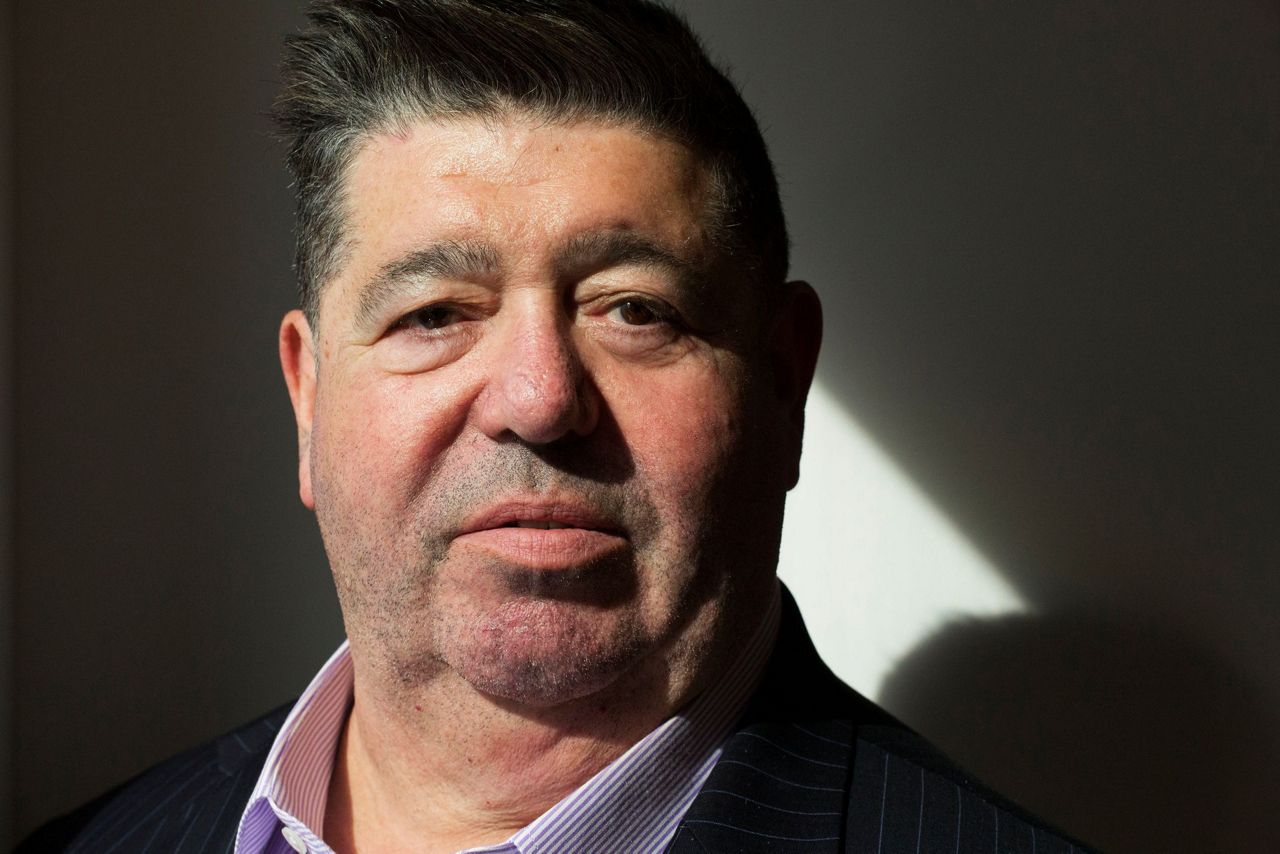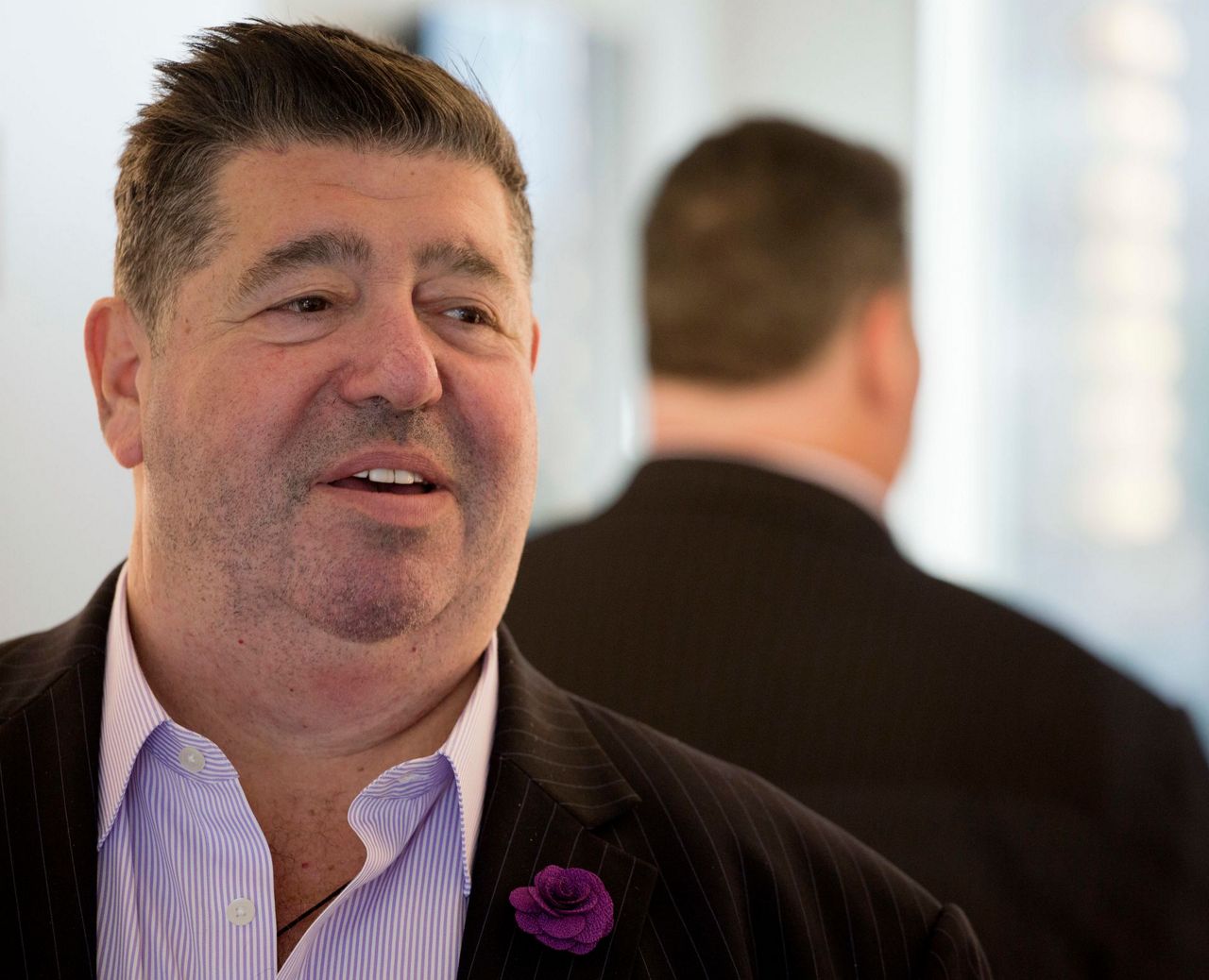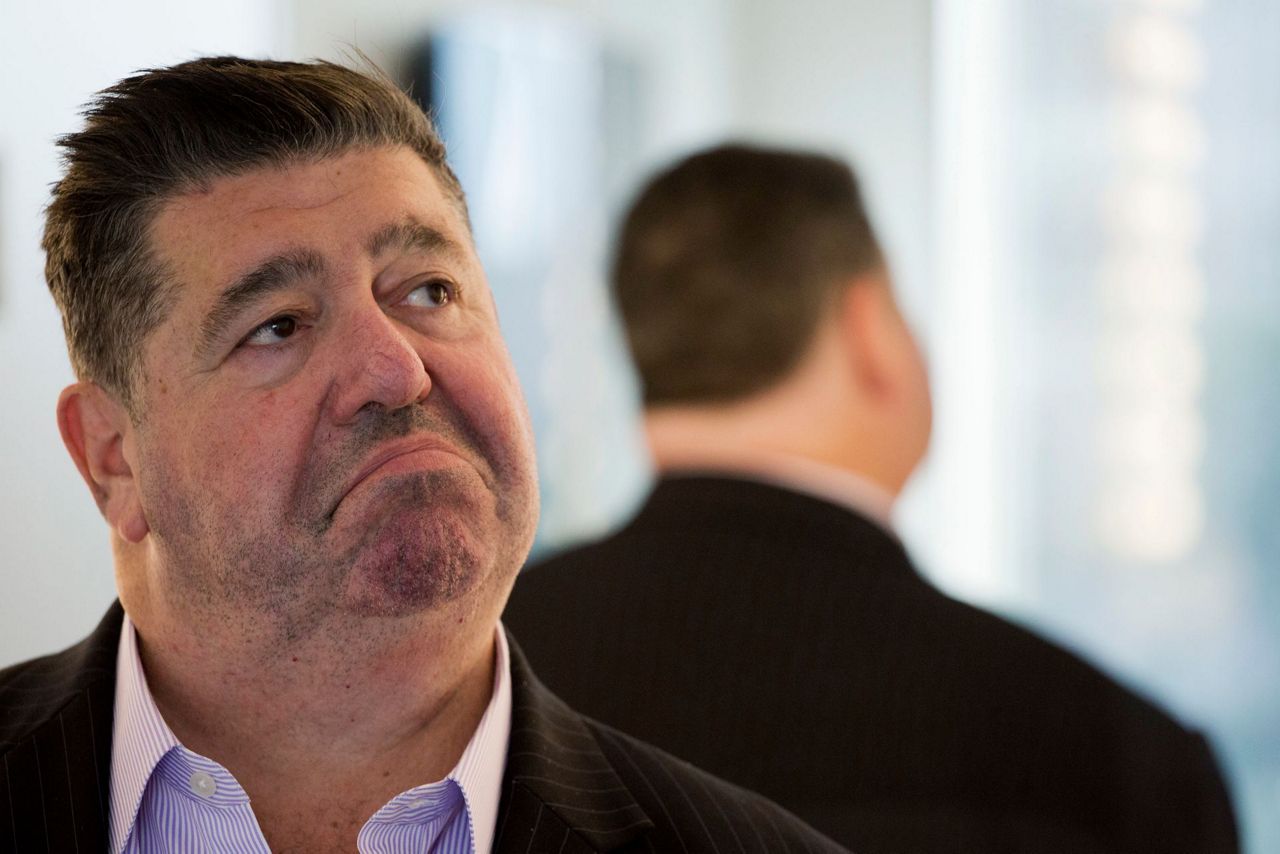NEW YORK (AP) — Before Rob Goldstone sent Donald Trump Jr. the email that would become the focus of perhaps the most pivotal political investigation in history, he recalls saying: "No good could come of this."
The person Goldstone made the comment to was a client, pop singer Emin, who asked him to reach out and request a meeting with Trump.
Although the Azerbaijan-born pop star was working to parlay his fame into U.S. stardom, he wasn't asking for himself, but for his father, mogul Aras Agalorov. The mogul, who had strong Russian business ties, was seeking to give Trump information that certain Russians were giving illegal donations to the Democrats.
Or that's the story Goldstone says he got from Emin, and what he wrote to Donald Trump Jr. in the email, which he readily admits he "puffed up" to make it seem more important.
"I would have written 'Snow White and the Seven Dwarfs' if that would have gotten his attention," Goldstone says.
Instead, as the world now knows, he teased "high level, sensitive information" that a Russian government attorney would "provide the Trump campaign with some official documents and information that would incriminate Hillary (Clinton) and her dealings with Russia and would be very useful to your father." The meeting would be attended by Donald Trump Jr., Jared Kushner and Paul Manafort, as well as Russian lawyer Natalia Veselnitskaya and three other Russians, and Goldstone, who says he only attended at Trump's behest.
The meeting not only become a focus of Robert Mueller and investigators trying to determine the extent of Russian meddling in the 2016 U.S. presidential elections, it would thrust Goldstone into a political whirlwind in which he had to defend himself against allegations that he was everything from a Russian informant to right-wing Trump supporter to a white supremacist. He became fodder for late-night comics, who used his rotund shape and his cheeky social media persona (Google: Goldstone and hats) to deride him as a dunce.
Goldstone hardly expected that kind of fallout from his email. The reason he told Emin it was a "really bad idea" is because he feared the meeting would be a bust, and if so, he would ruin his client's chances to ask a really big favor of the future president of the United States when they needed it.
"If this had never happened, I'm sure I would have had Emin performing at the inaugural ball or something," he said of his now former client.
Goldstone details the meeting, which he considered a debacle, and the ensuing firestorm that followed months later when it was revealed by the media and later became part of a federal investigation in his new book, "Pop Stars, Pageants & Presidents: How an Email Trumped My Life ." The book is self-published: Goldstone admits that he couldn't even get publishing houses to consider releasing the book because they feared he was an associate of former Trump operative Steve Bannon, whom some have linked to white supremacist groups.
But the British-born Goldstone insists he is not a supporter of the president, or political at all, and certainly not a white supremacist. A citizen of both the United Kingdom and the United States, he has never voted (though he's not proud of that fact). Though described in some reports as close to the Trump family, according to Goldstone, he only met the president a handful of times, and Donald Trump Jr. twice (including that infamous meeting). And his connection to Russia came only because of his client Emin's deep connections there.
"They see me as someone who set out to get Trump elected," said Goldstone. "Somebody asked me ... what the hardest part of this has been, and I think one of it is about being totally mischaracterized, and misrepresented. I'd met Donald Trump five times. . People were writing as they did that Steve Bannon and I were the new face of white supremacy in America. . Those are really scary words."
Goldstone, who frequently describes himself as an impartial party to the saga, sent the initial email to Donald Trump Jr., who expressed interest in setting up the meeting after reading Goldstone's description of what it promised. From there, Goldstone arranged a phone call with Emin to go into further detail, which led Trump to contact Goldstone to go ahead with setting up the meeting.
But Goldstone says he never asked Emin what the pop star and Trump talked about.
"The reason I don't have closure on this story is that I know what I conveyed and I hyped . (but) what I don't know is that bit in the middle that not only sealed the meeting but suddenly kicked it up a level from an attorney and Don Jr. meeting to an attorney and three other people, Don, Manafort and Kushner. That's a big difference in my eyes and I don't know what it is."
Goldstone saw the meeting as a disaster that hardly lived up to its promise. While Veselnitskaya did mention Russians who were donating to the Democratic campaign, Goldstone recalls it as convoluted, and she made the focus of the meeting a ban on Americans adopting Russian children as a result of the Global Magnitsky Act, which gives Washington the right to sanction human rights violators.
In fact, Goldstone thought it went so badly that when Aras Agalarov contacted him to try and set up a follow-up, he just pretended to make contact with the Trumps but instead ignored the request.
Goldstone had already parted ways with Emin, with the intention of taking a year off, when he got a call from the Trump team in the spring of 2017, asking him if he could recall who was at the meeting. He reached out to Emin and suggested he call the Trump team, and thought that was the end of it until he got a call from a reporter and learned that the meeting had exploded in the media and was being described as potential proof of Russian meddling in the election that he realized how serious the situation was.
"I was stunned, but stunned as in 'Oh, so this meeting was important.' . but still I find this hard to believe," he recalled.
But he called Emin again, and suggested they start reaching out to lawyers. In the meantime, his life, in his words, began to crumble. The former journalist became hounded by reporters, so much so that he went to Thailand, a favorite haunt, to hide from them. He couldn't conduct business, and at one point, a bank liquidated his accounts because they didn't want to do business with him.
"When this broke, I said to Emin very early, 'This could be devastating to my business and to me.' And he made a comment . 'Or it can make you really famous,'" Goldstone recalls. "I was really miffed at that moment and I said to him, 'You know Jeffrey Dahmer was really famous. He didn't get a lot of good out of it. You're an idiot.'"
While Goldstone granted two interviews in the middle of the storm, including to The Associated Press, he decided to mainly keep quiet. Meanwhile, the Mueller team and congressional investigators into Russian meddling asked him if he'd testify in their inquiries. He voluntarily obliged.
"I would do it again in a heartbeat because it's at the core of what they're investigating, you know — was there a conspiracy to collude or interfere?. That is major, there are global stakes involved," he said.
While Goldstone has repeatedly said he regrets sending the initial email — in hindsight — if he had the same information he had in 2016, he'd probably do it again.
"If I regret anything, and there are elements of it I really do regret, one of them is that I didn't explain the Hillary thing very well. Hillary Clinton herself had nothing to do with my email but because they talked about illegal funding to the Democrats and its candidate, which is why they wanted to talk. Well, she was the candidate," he said. "It sounded like she was involved in some way in a negative way. So I take ownership for that."
These days, in addition to publicizing his new book, Goldstone is trying to figure out what's next. As a publicist and a journalist, he'd always been behind the scenes. Now that he's been unwillingly thrust into the limelight, he's trying to figure out how to handle it.
"Somebody said to me last week, 'You're kind of the Monica Lewinsky in all this.' And I said, 'What's interesting about that is I always felt bad for Monica Lewinsky, the way it happened for her, the way she was portrayed and how hard she worked at rehabilitating herself away from the spotlight,'" he said.
"So if I really am that, I think there's a lot of rehabilitation that needs to happen before I could say my life was back to normal, because to have people view me the way they have, speak to me the way they have and believe that I'm something I'm not, is really difficult."
Copyright 2018 The Associated Press. All rights reserved. This material may not be published, broadcast, rewritten or redistributed.





